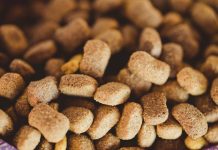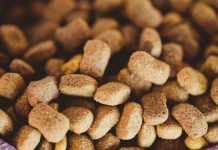When it comes to nurturing your new furry family member, ensuring they receive the right nutrition is paramount. Yet, navigating the world of puppy food can often feel overwhelming, with a myriad of myths clouding the path to making informed choices. From misconceptions about grain-free diets to debates over raw versus kibble, these myths can lead even the most caring pet owners astray. In this article, “,” we will shed light on the truth behind common puppy food misconceptions, guiding you towards decisions that truly support your pup’s health and happiness. With a warm and instructive approach, we aim to empower you with the knowledge you need to provide the best start for your four-legged friend.
Understanding Nutritional Needs for Your Growing Puppy
Ensuring your puppy gets the right nutrients during their formative months is crucial for their health and development. Puppies have unique dietary requirements compared to adult dogs, and understanding these needs can help you make informed decisions about their diet. Here are some key elements to focus on:
- Protein: Puppies require higher levels of protein to support their rapid growth and muscle development. Look for foods with high-quality animal proteins like chicken, beef, or fish as the primary ingredient.
- Fats: Healthy fats are essential for energy and brain development. Opt for puppy foods that include sources of omega-3 and omega-6 fatty acids.
- Calcium and Phosphorus: These minerals are vital for bone development. Ensure the food provides the right balance to support strong bones and teeth.
- Vitamins and Minerals: A variety of vitamins and minerals are necessary for a healthy immune system and overall well-being. A complete and balanced puppy food will include these essentials.
It’s also important to be mindful of portion sizes and feeding frequency. Puppies generally need more frequent meals than adult dogs, usually 3-4 times a day, gradually reducing as they grow. Consult your veterinarian to tailor a feeding plan specific to your puppy’s breed, size, and activity level.
Debunking Common Puppy Food Myths and Misconceptions
When it comes to feeding your puppy, it’s easy to get overwhelmed by the plethora of information—and misinformation—available. Let’s clear up some of the most common myths that can lead to confusion.
- Myth: Puppies should eat the same food as adult dogs. Puppies have unique nutritional needs that differ significantly from those of adult dogs. They require a higher protein content and specific nutrients like DHA for brain development. Opt for a diet formulated specifically for puppies to ensure they’re getting the right balance.
- Myth: Grain-free diets are the best choice for puppies. While grain-free diets are trendy, they are not necessarily healthier for your pup. Grains can be an important source of carbohydrates, providing energy for your growing puppy. Consult with your vet to determine the best dietary plan for your furry friend.
- Myth: Table scraps are a good supplement to puppy food. Although it might be tempting to share your meals, human food can upset your puppy’s delicate digestive system and lead to obesity or nutritional imbalances. Stick to a vet-recommended puppy food to keep your little one thriving.

Choosing the Right Ingredients for Optimal Puppy Health
When it comes to nurturing your puppy’s health, the quality of ingredients in their food is paramount. Puppies require a delicate balance of nutrients to support their rapid growth and development. Prioritize whole, natural ingredients that are rich in essential nutrients. Look for food that includes:
- High-quality proteins such as chicken, beef, or fish to support muscle development and energy needs.
- Complex carbohydrates like brown rice or sweet potatoes for sustained energy release.
- Healthy fats from sources like fish oil or flaxseed to promote a shiny coat and healthy brain development.
- Essential vitamins and minerals such as calcium and phosphorus to aid in bone health and immune function.
Avoid fillers like corn and soy, artificial preservatives, and added sugars, as they can detract from your puppy’s overall health and vitality. Remember, investing in the right ingredients today sets the foundation for a lifetime of well-being for your furry friend.

Expert Tips for a Balanced and Nourishing Puppy Diet
Providing your puppy with a balanced diet is essential for their growth and overall health. Here are some expert tips to ensure your furry friend gets the nourishment they need:
- Protein is Key: Ensure your puppy’s diet is rich in high-quality protein sources like chicken, lamb, or fish. Proteins are crucial for muscle development and overall growth.
- Don’t Skimp on Fats: Healthy fats are vital for energy and maintaining a shiny coat. Look for foods that include omega-3 and omega-6 fatty acids.
- Include Carbohydrates: Carbs provide energy and are essential for a balanced diet. Opt for whole grains or vegetables as a source.
- Watch the Calcium: While calcium is necessary for bone development, too much can be harmful. Choose foods with balanced calcium-phosphorus ratios.
- Hydration is Vital: Always provide fresh water alongside meals to keep your puppy hydrated and support digestion.
Remember, every puppy is unique, so it’s important to consult with a veterinarian to tailor these tips to your pet’s specific needs.
















